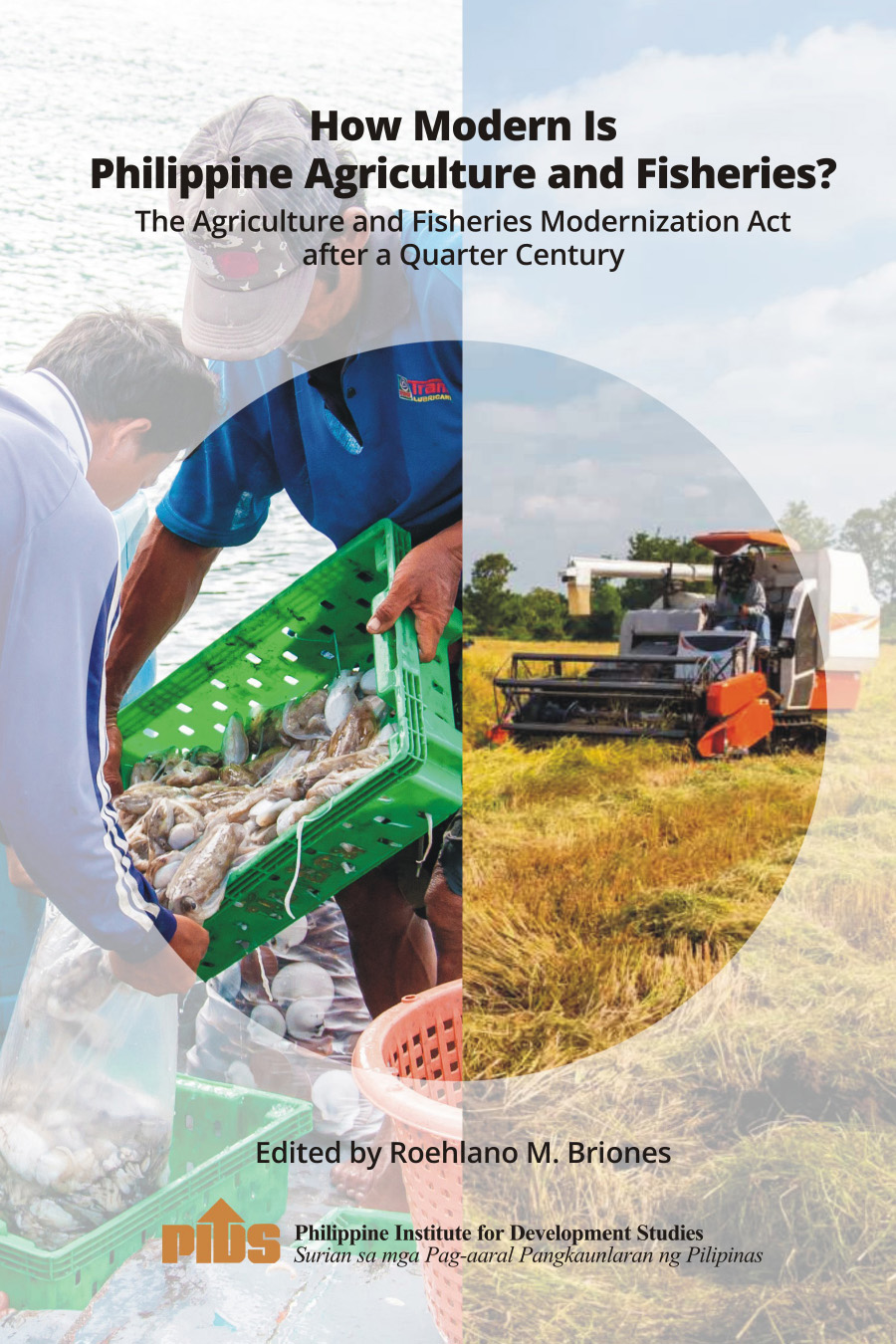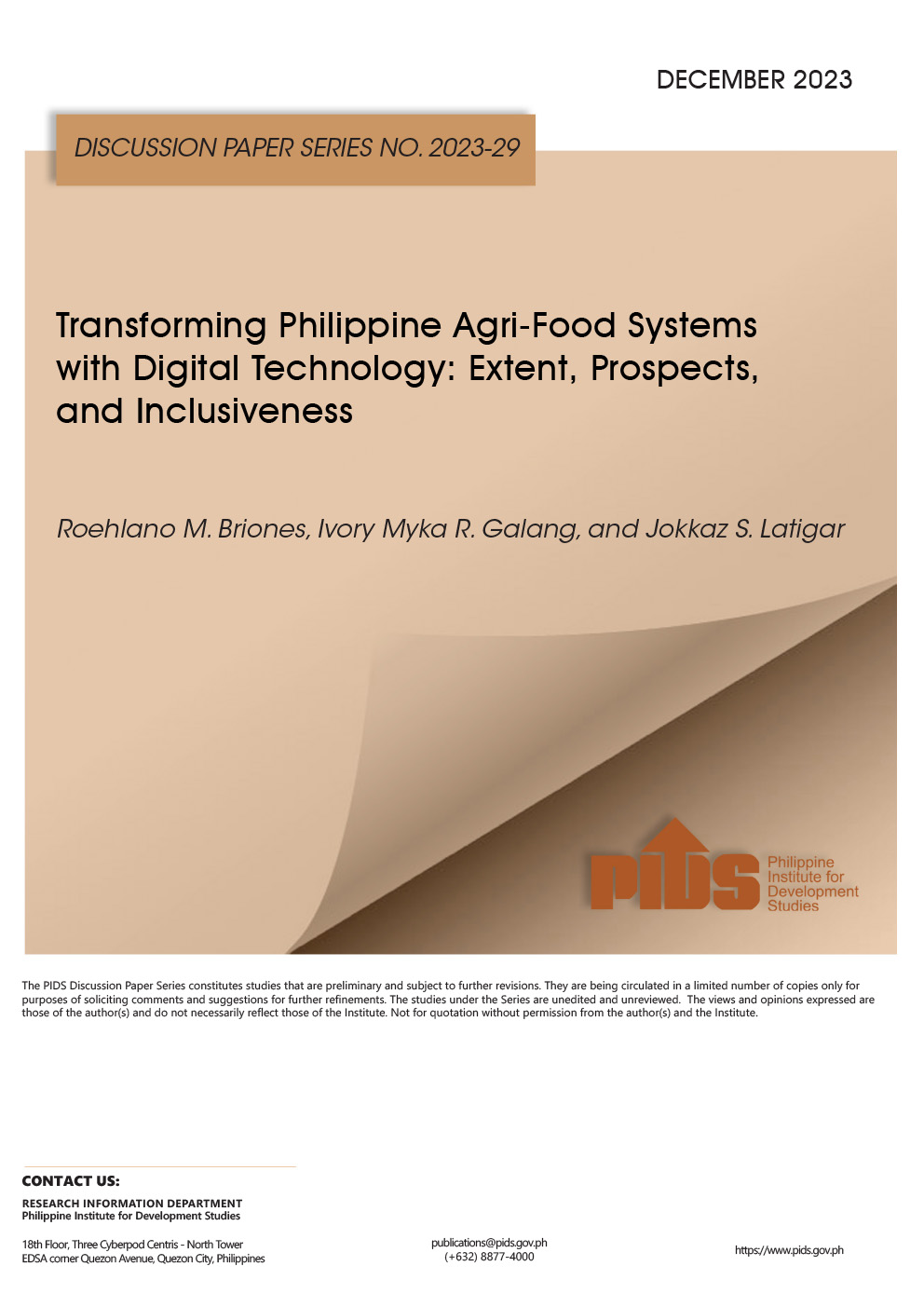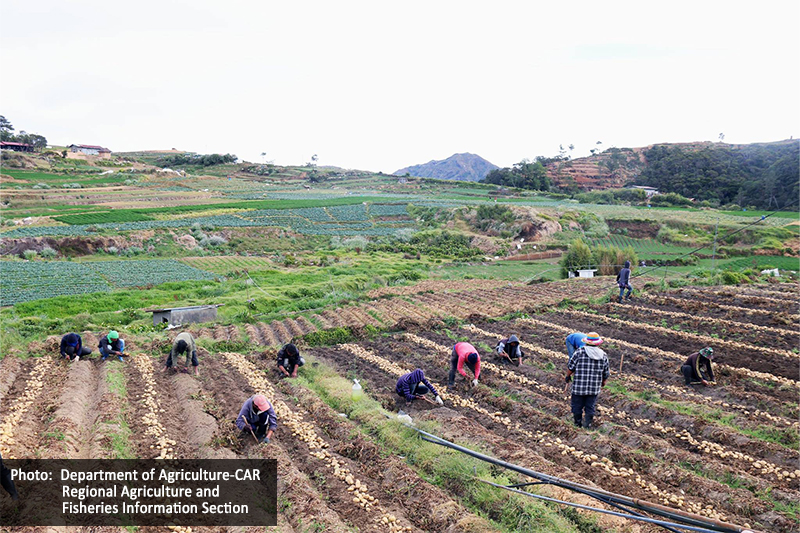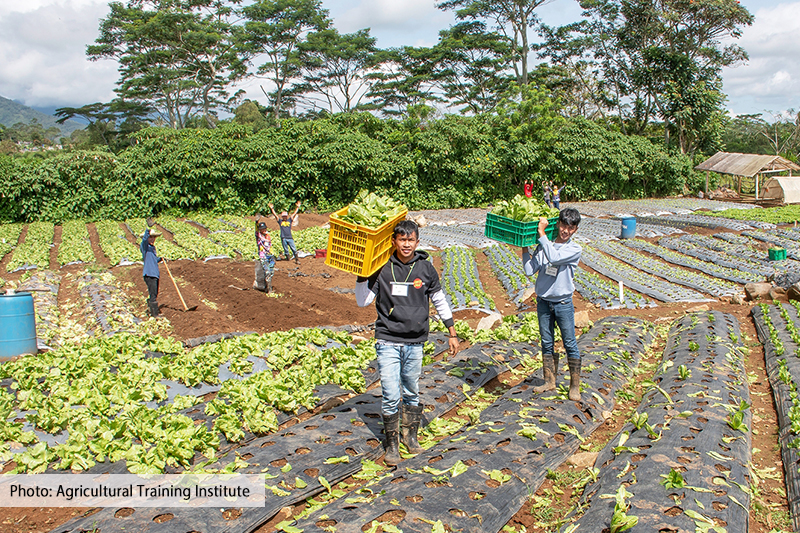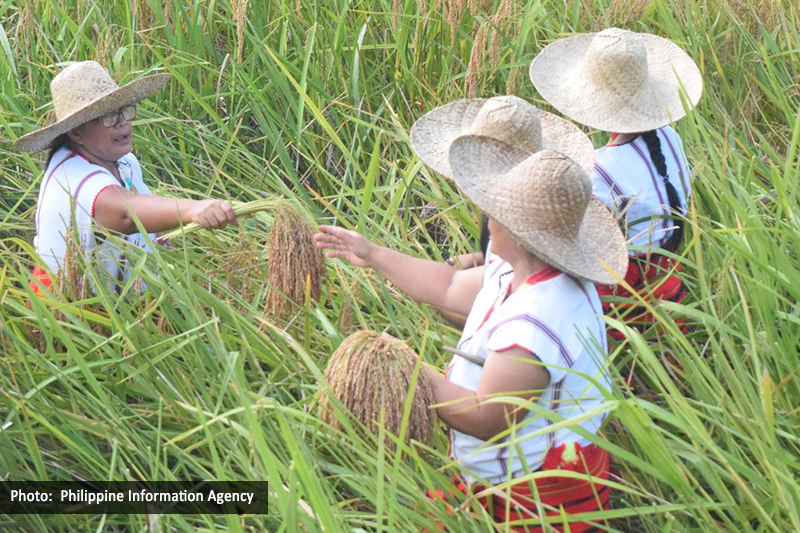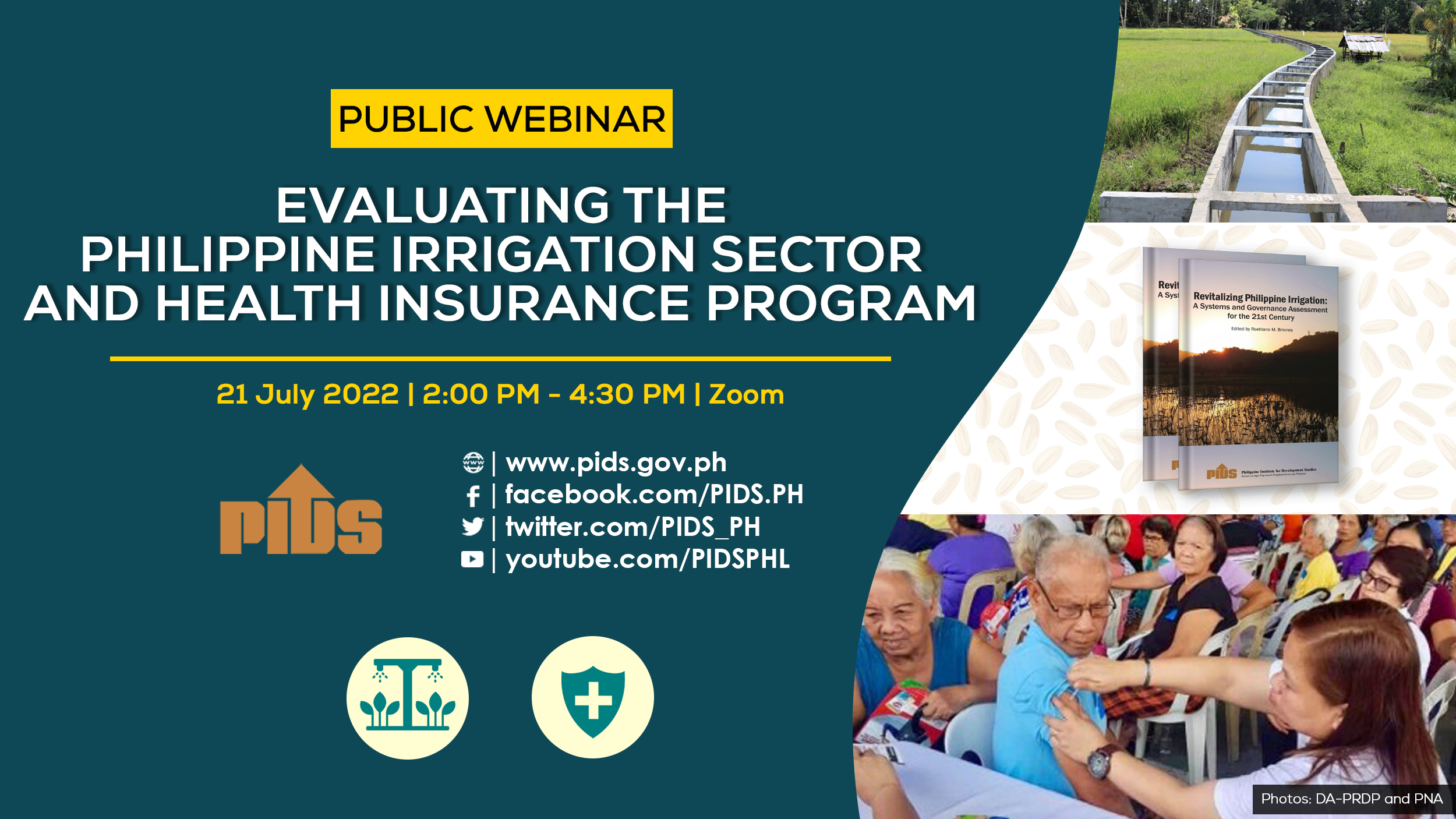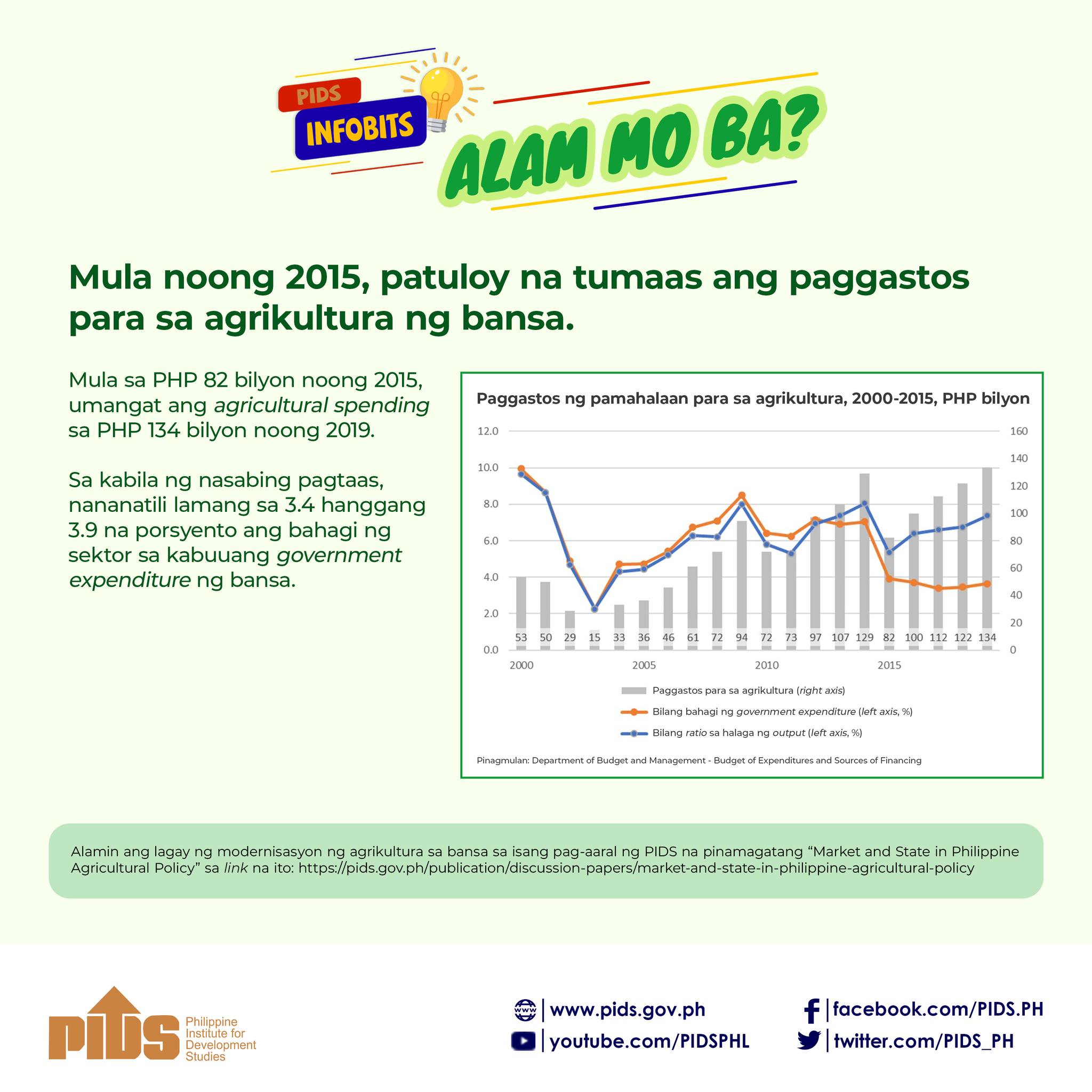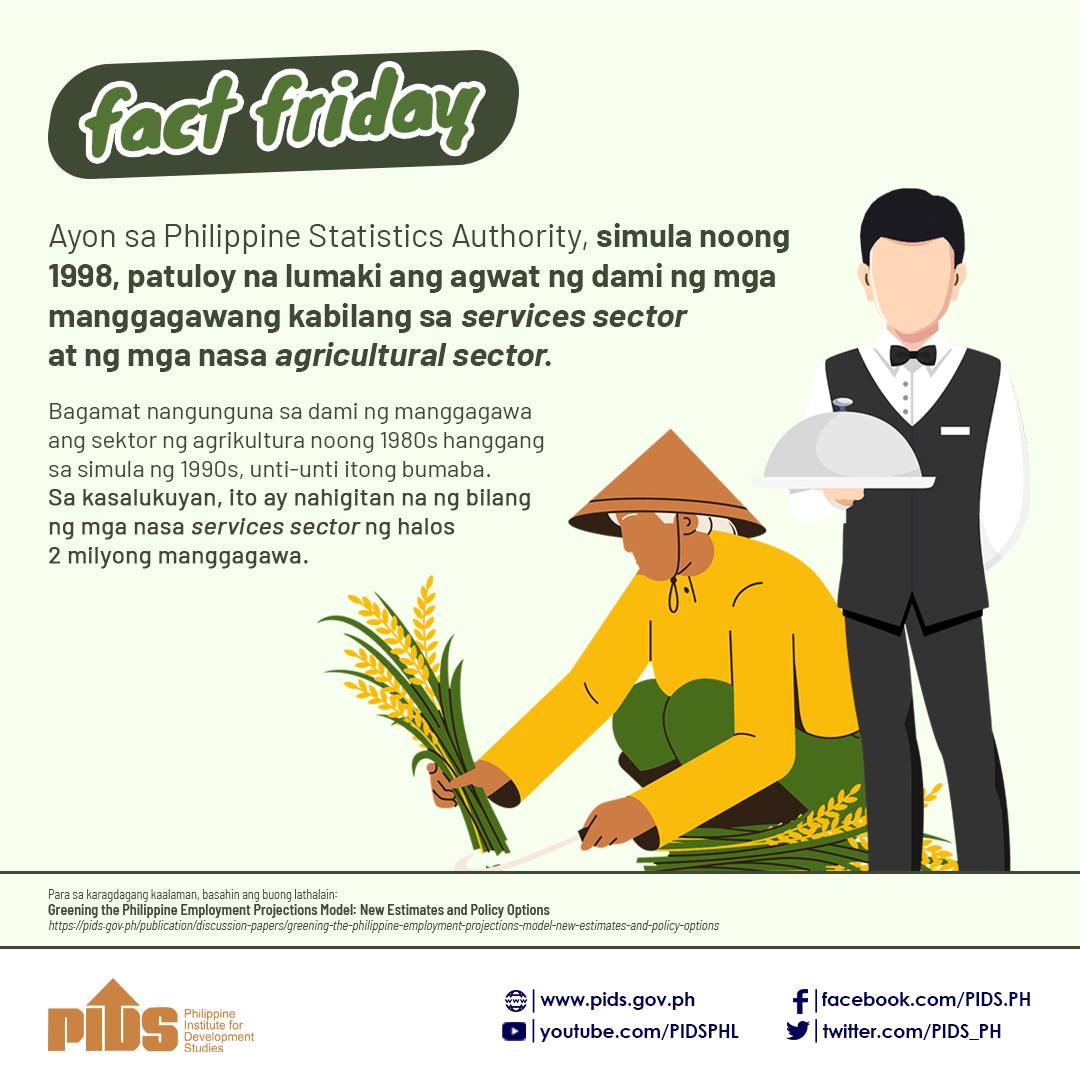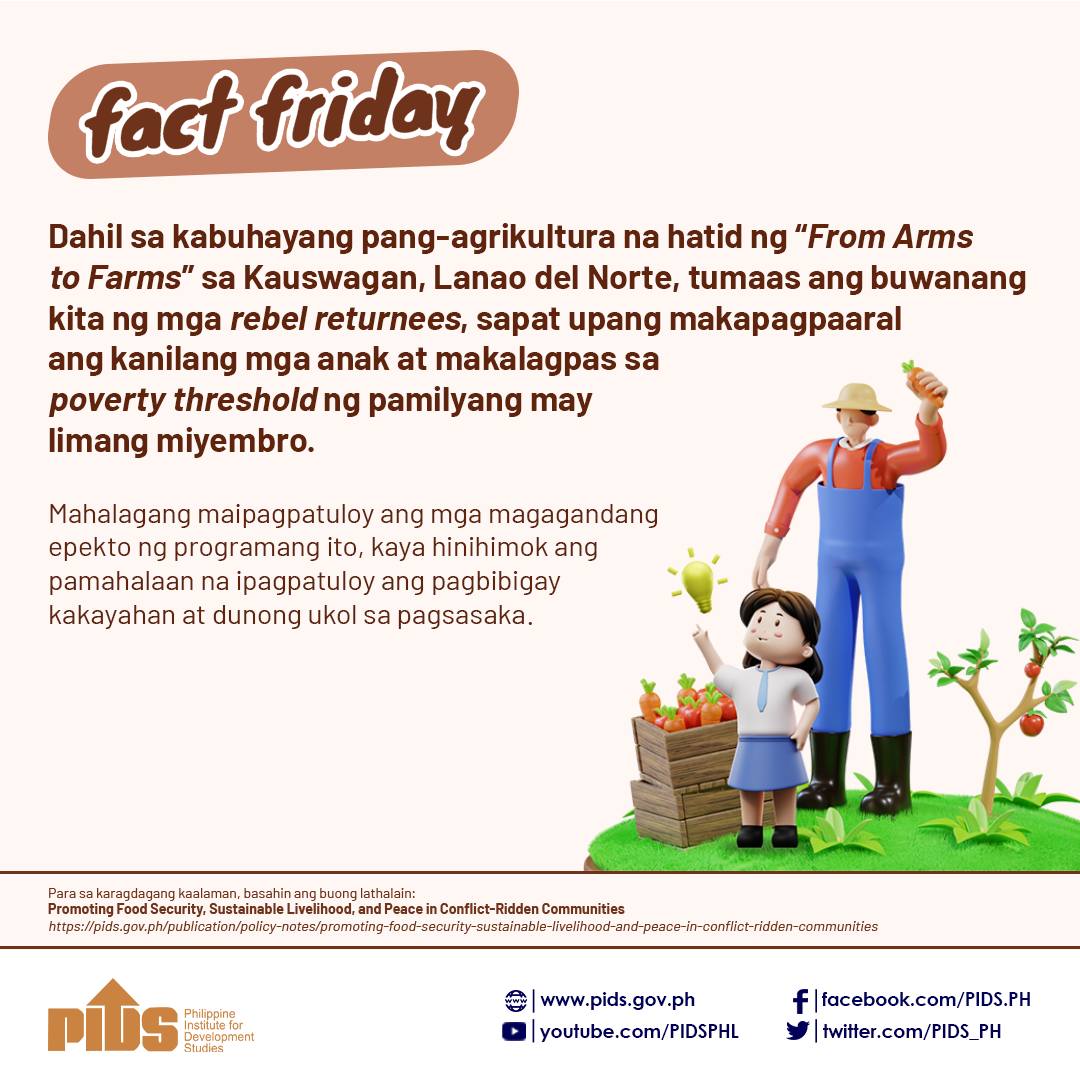
An inclusive irrigation development program that involves stakeholders’ participation and their expertise and methodologies will be beneficial to the country’s irrigation sector in the long run.
This was one of the key points raised during the virtual launch of the Philippine Institute for Development Studies’ (PIDS) newest book on irrigation titled “Revitalizing Philippine Irrigation: A Systems and Governance Assessment for the 21st Century” held recently. The book, which contains eight chapters, compiles various PIDS studies about the country’s irrigation system written by esteemed authors from different organizations.
In his presentation, Dr. Roehlano Briones, PIDS senior research fellow and the book’s editor, emphasized the need to “combine all sectors’ expertise, disciplines, tools, and methodologies, including stakeholders’ participation” to maximize the long-term benefits from the country’s irrigation development program.
International Rice Research Institute (IRRI) Director-General Jean Balié, a discussant in the virtual event, shared the same sentiment. Balie noted that in terms of water management, the country has successfully engaged the farmer community; however, this engagement needs to be maintained and improved to make water management sustainable.
He also stressed the need to improve synergies among concerned government offices, particularly the Department of Agriculture (DA), the National Irrigation Administration (NIA), and the Department of Environment and Natural Resources (DENR).
For instance, the DA could help NIA and DENR explore and develop technologies to monitor and evaluate water use, according to Balié.
“The DA is working with IRRI and PhilRice [Philippine Rice Research Institute] to develop an irrigation advisory service that can operate effectively for irrigation systems of small and large scales… these kinds of modern technology need to be embedded in the system in the overall engagement plan to take the country toward Agriculture 4.0,” Balié explained.
He also pushed for agricultural diversification to include other crops in the country other than rice, urging the government to explore policies that could improve irrigation access for sugarcane, coconut, fruits, and vegetables “to offer more income opportunities for smallholder farmers”.
Balié also stressed the importance of “more political clout” for agriculture stakeholders, particularly in the rice sector, “to ascertain the long-term access to water”. ###
The e-copy of the book may be downloaded here: bit.ly/PIDSirrigationbook. You may also watch the virtual launch of the PIDS book at https://www.facebook.com/PIDS.PH/videos/412985720031043. For more videos of PIDS events, go to https://www.pids.gov.ph/videos.
This was one of the key points raised during the virtual launch of the Philippine Institute for Development Studies’ (PIDS) newest book on irrigation titled “Revitalizing Philippine Irrigation: A Systems and Governance Assessment for the 21st Century” held recently. The book, which contains eight chapters, compiles various PIDS studies about the country’s irrigation system written by esteemed authors from different organizations.
In his presentation, Dr. Roehlano Briones, PIDS senior research fellow and the book’s editor, emphasized the need to “combine all sectors’ expertise, disciplines, tools, and methodologies, including stakeholders’ participation” to maximize the long-term benefits from the country’s irrigation development program.
International Rice Research Institute (IRRI) Director-General Jean Balié, a discussant in the virtual event, shared the same sentiment. Balie noted that in terms of water management, the country has successfully engaged the farmer community; however, this engagement needs to be maintained and improved to make water management sustainable.
He also stressed the need to improve synergies among concerned government offices, particularly the Department of Agriculture (DA), the National Irrigation Administration (NIA), and the Department of Environment and Natural Resources (DENR).
For instance, the DA could help NIA and DENR explore and develop technologies to monitor and evaluate water use, according to Balié.
“The DA is working with IRRI and PhilRice [Philippine Rice Research Institute] to develop an irrigation advisory service that can operate effectively for irrigation systems of small and large scales… these kinds of modern technology need to be embedded in the system in the overall engagement plan to take the country toward Agriculture 4.0,” Balié explained.
He also pushed for agricultural diversification to include other crops in the country other than rice, urging the government to explore policies that could improve irrigation access for sugarcane, coconut, fruits, and vegetables “to offer more income opportunities for smallholder farmers”.
Balié also stressed the importance of “more political clout” for agriculture stakeholders, particularly in the rice sector, “to ascertain the long-term access to water”. ###
The e-copy of the book may be downloaded here: bit.ly/PIDSirrigationbook. You may also watch the virtual launch of the PIDS book at https://www.facebook.com/PIDS.PH/videos/412985720031043. For more videos of PIDS events, go to https://www.pids.gov.ph/videos.

